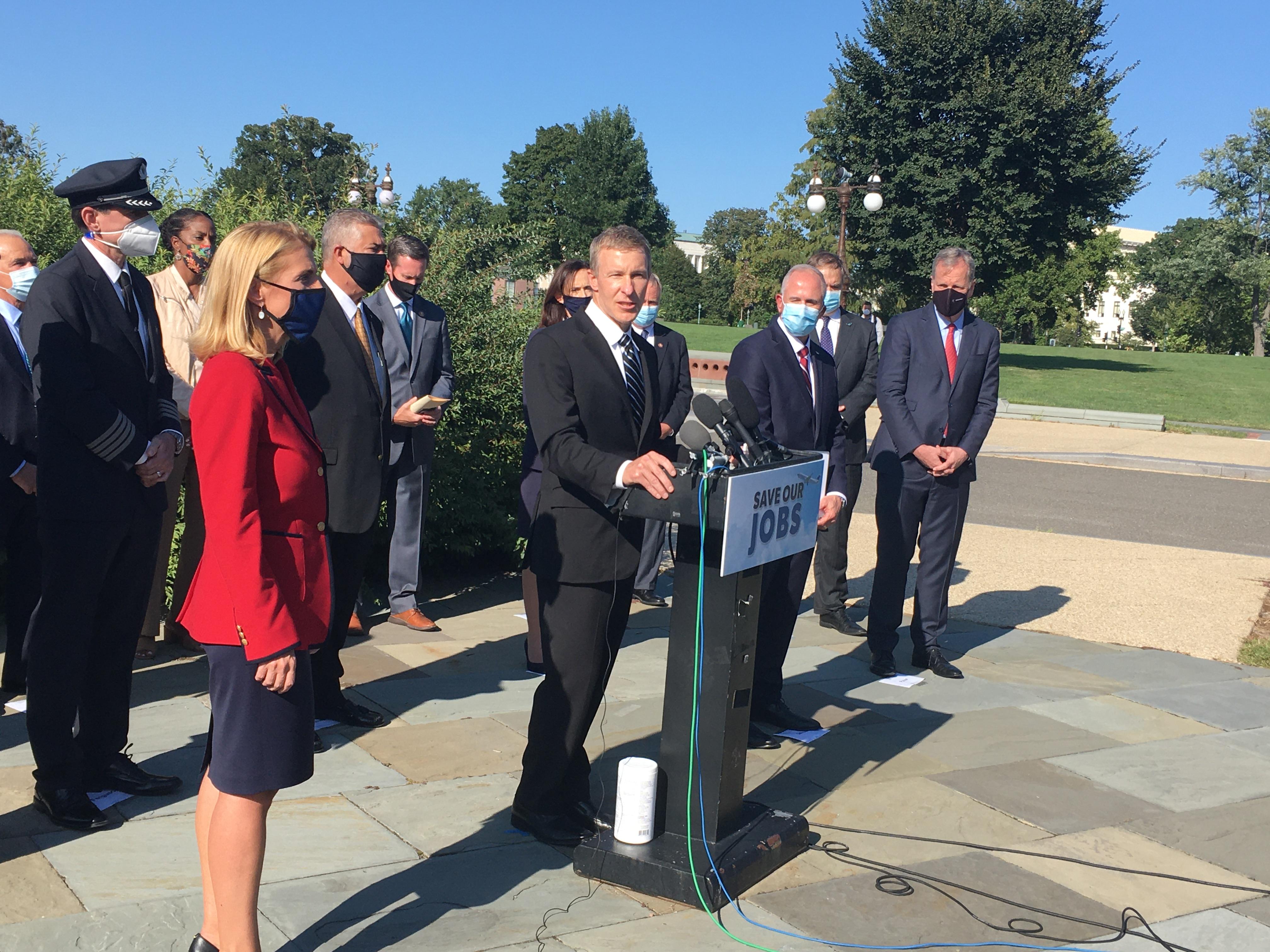EDITORIAL: The US airline workers’ heartbreaking plea to Washington

Emotion and urgency hung heavy in the air on the lawns of the US Capitol as the CEOs of three major airlines, the leaders of five large aviation unions and two congressmen appealed to Washington “to do the right thing.”
The "right thing" they are asking for is passage of a bill that would extend the government’s payroll support program, set to expire at the end of September, for another six months. It’s a big ask, given that Congress stepped up early in the pandemic and passed the CARES Act in March that has provided US airlines with billions of dollars in secured lending funds, payroll support and other relief aid.
Since then, the pandemic has lasted longer, bit deeper into lives and economies than anyone predicted, and many businesses are failing.
But the Air Carrier Worker Support Extension Act, introduced by Republican Senators Roger Wicker and Susan Collins, is thoughtful and practical. It provides an additional $28.5 billion in payroll but only requires $11 billion of new appropriations, with the remaining $17.5 billion repurposed from unspent CARES Act secured lending funds. The bill also has bipartisan support and the White House has indicated that President Donald Trump would sign it.
It would be huge in terms of securing airline jobs through what is increasingly looking like a brutal winter season of continued Covid spikes, quarantines and likely continued much-reduced demand for flights relative to 2019. It would, therefore, be a bridge to get US airlines to the other side and to rapidly pick up and deliver fuller networks when there is more appetite for travel. Skilled pilots and flight attendants—thousands of whom have already been furloughed--are not easily re-hired; there are training requirements and schedules to be worked that take time.
But that was not the focus of the press event on Sept. 22 on Capitol Hill, attended by the CEOs of American Airlines, JetBlue Airways and United Airlines. The focus—more of an appeal—was on making Washington understand what is at stake. In just a few days, thousands of airline employees could find themselves out of a job, with no healthcare in a pandemic.
Sara Nelson, president of the Association of Flight Attendants-CWA, told of people moving their stuff into cars and of a flight attendant who was furloughed after 9/11 and now finds herself in the same situation. This time, her husband is awaiting a heart transplant and her furlough could move him down the waiting list.
These employees, each CEO and union leader reminded Congress, have been frontline workers through the pandemic, allowing medical workers, equipment and supplies to get to where they needed to be while, as United’s Scott Kirby put it, “most of us were sheltering at home.”
The frustration and disbelief that a solution is so close at hand, but so out of grasp, was palpable.
“We are imploring not just Congress, but everyone here in Washington to do the right thing,” Kirby said.
The odds are stacked against them; Washington is at its usual political games, focused on when and who a nomination should be made to succeed Supreme Court Justice Ruth Bader Ginsberg, who died last week. And then there’s the presidential election.
“We are not giving up, but Congress need to do what’s right,” American’s Doug Parker said. He led an airline through 9/11, when he was CEO at America West, then through two airline bankruptcies and the US Airways/American merger. His task this week is likely his hardest ever. And it will be all the more heartbreaking if Washington doesn’t heed the call.
Karen Walker/ATW [email protected]


